Parasite vs Joker: A comparison of two films that wage war on wealth inequality
With the 92nd Academy Awards happening tonight, I’d like to discuss two of the most hotly discussed films up for Best Picture this year - Todd Phillips’s dark DC thriller ‘Joker’ and Bong Joon-Ho’s wickedly black comedy ‘Parasite’
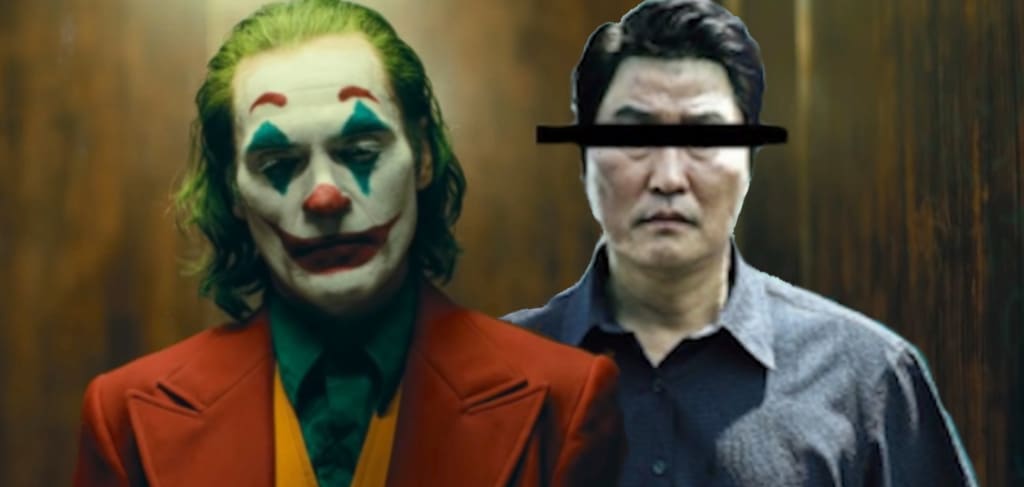
There is no doubt that both Joker and Parasite have created a stir in the world of cinema and very much both deserve to take home Best Picture - in my opinion they are both jarring works of art that directly point a bold finger at how people suffer as as a result of wealth inequality, but they accomplish this in different ways. In this article, I will compare Joker and Parasite and demonstrate the similarities and differences between the narrative structures and representations within these two Best Picture nominees.
Similarities
Both films represent the stark difference in the wealth gap
Both Parasite and Joker examine the extreme wealth imbalances that affect South Korea and the USA today. The Kim family live in a dingy basement apartment with only a view of a dirty alleyway, worlds away yet still living in the same city as their rich counterparts, the Parks. This reflects on the startling reality of the differences in income in South Korea - in 2015, the richest 10% of South Koreans held 66% of the wealth, whereas the poorer half held only 2% (Source: 'Parasite’ and South Korea’s Income Gap: Call It Dirt Spoon Cinema by Brian X Chen).
Joker, although set during the depression when wealth inequality was at its most unstable, is still highly relevant today. Arthur Fleck starves himself in a cramped tower-flat in Gotham, a dilapidated part of New York where the impoverished have been left to rot, whilst a couple of miles away, a wealthy few who own the city's money sit in their theatre boxes drinking champagne and smoking cigars.
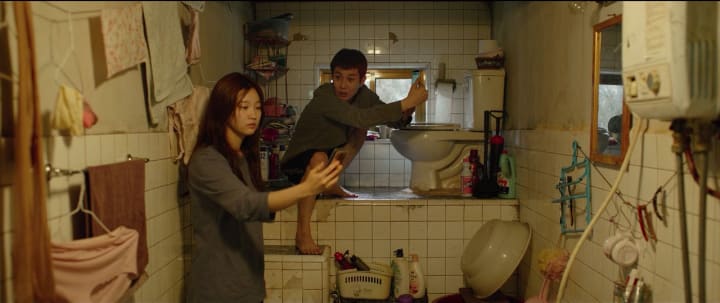
We see the upper class demonise the working class in Parasite and Joker
Both Parasite and Joker reveal the arrogance of the upper class. Arthur Fleck, with his job as a clown, is literally the butt of all jokes; as explained in my previous article on Joker, Arthur is seen consistently as an easy target for ridicule by those who have not experienced what it is like to live with a mental illness whilst struggling to get by on a minimum wage.
In Parasite, the degradation of the Kims by the Parks is done to a similar degree but more through discrete spitefulness - the Parks talk about them behind their back and complain about how they smell, with a particular victimisation of Kim Ki-taek. It is overhearing this and witnessing Park Dong-ik react with disgust to basement dweller Guen-se that drives Ki-taek to attack Dong-ik and kill him.
In both films, the rich are ultimately the parasites
The Park family and the wealthy characters in Joker are both dependent on the working class to a certain extent. In Parasite, the Park family are unable to do basic everyday tasks such as driving, washing clothes, cooking and cleaning, and they depend on others to do pretty much everything for them - without servants, drivers or tutors, their world falls apart.
Although Arthur Fleck is not a domestic servant in Joker, he is still a servant to others' entertainment needs. Drunk wall street bankers who accompany him on a subway train use his compulsive laughter as an excuse to bully him, which in turn is a source of fun for them. Murray Franklin's television network also broadcasts Arthur's stand-up routine which is corrupted by his mental illness in order to entertain and attract viewers.
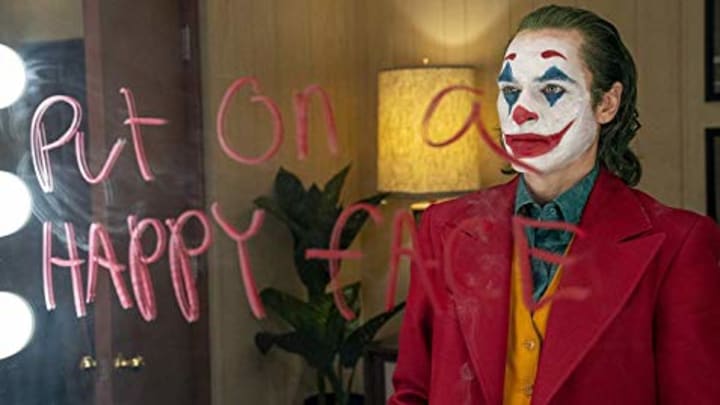
In Parasite and Joker, the oppressed are immoral, but easy to sympathise with
Although we do not agree with or commend their actions, the Kim family and Arthur Fleck are easy to relate to. Both subjects of these films have been put in positions which, if they do not rebel against, they will be stuck in for the rest of their lives. They have been abused by a system which does not care for them, so why should they care for the people in charge of that system? Looking at it this way, it is understandable why the Kim family infiltrate and deceive the Park family, and why Arthur Fleck resorts to carrying out extreme measures such as violence towards the rich.
Differences
Joker focuses more on mental health as a result of class inequality, whereas Parasite focuses more on the class divide itself
In Joker, the effects of the capitalist system on Arthur Fleck's mental health are central to the story and how we relate to him. His maniacal laugh is integrated as a quality that is key to his character and is a result of a lifetime of abuse and an inadequate healthcare system. As explained in my other article on Joker, the funding for Arthur's mental health therapy is cut by the government - this is another key event which is instrumental in deteriorating Arthur's mental state further and ultimately drives him to lose sanity altogether.
Parasite differs in the respect that although it demonstrates other ways in which the Kim family are affected by their place in society (their deplorable living conditions, etc) their mental states are not so deeply examined. However, it could be argued that basement dweller Guen-se's mental health has very much suffered over the four years he has been living underground beneath the Park's mansion, with little sunlight and nutrition. Evidence for this arises from his questionable 'worship' of Mr Park.
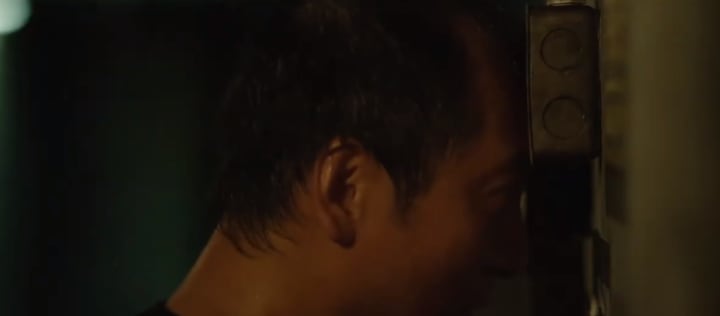
The characters in Parasite are somewhat more aware of the class divide, whereas to begin with Arthur Fleck is not
Right from the beginning of Parasite, the Kims are aware that they have been dealt a poor hand in the game of life and that there are people out there who are living in a much comfier setting than their house below ground level. They already know that people like the Parks do not care for families like the Kims, and that is one reason why they begin to exploit them at an early opportunity. It is also the desperation caused by the class divide that makes Ki-Jung protest "Don't worry about them! Worry about us!" when her father begins to consider the Parks' previous servants now they are jobless.
In Joker, Arthur Fleck is more naive in the sense that he initially puts his trust in those that have too much money and power - he idolises Murray Franklin and fantasises about sharing a joke with him on his talk show, and when he visits Wayne Manor to confront billionaire Thomas Wayne about the possibility of him being his father, we see that he genuinely wants to be accepted by who he thinks is his brother, Bruce Wayne. He seems to turn a blind eye to the upper class's disregard for anyone like himself, until he realises that he will always be seen as no more than a source of entertainment for them.
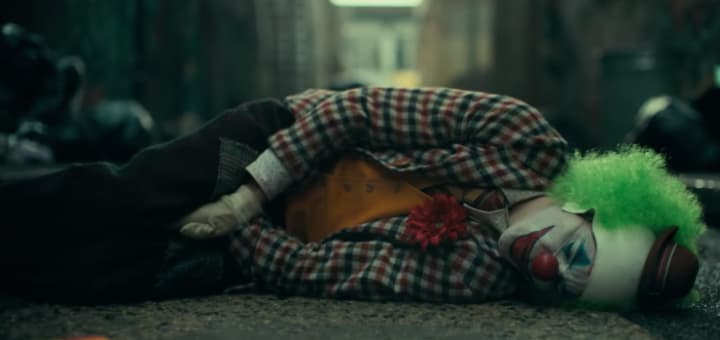
In Joker, it is more obvious who the 'bad guys' are
It is more black-and-white in Joker who we are supposed to root for (Arthur) and who we are supposed to hate (the billionaire class, Thomas Wayne etc). The characters Arthur encounters who are wealthy or powerful have no redeeming qualities, are aggressive and are the clear bullies within Joker's narrative. It is important to note that the 'Villains VS Heroes' narrative is much more prominent in high-budget films, and as Joker is a DC film after all, this does make more sense. However, it could be argued that Arthur himself is an ambiguous character, as although he is easy to sympathise with, he is definitely not perfect. This may be one of the reasons why Joker has also been dubbed as having the feel of 'an indie film'.
In terms of Parasite, The Park family are somewhat more likeable and relatable than the wealthy characters presented in Joker - yes, they are 'beautiful people' who are highly privileged, but as the story progresses, they appear more human and flawed, having conversations with the Kims and even confiding in them about their own personal conflicts. We also witness Park Yeon-kyo and Dong-ik having sex on their sofa, and the rawness of this scene reveals this high-class married couple's ability to be intimate and vulnerable with one another - thus making them easier to relate to.
Who do you think should win the Oscar?
Whether you're pro-Parasite or a Joker junkie, we can all agree that both of these movies depict class inequality in a way that is breath-taking, unnerving and they will both go down in cinema history.
But if you have a particular favourite, please feel free to discuss on my Facebook page, Instagram, or @ me on Twitter (@indiefilmsdee)! Also follow me for articles on upcoming indie films, film reviews and more!
About the Creator
Dee Simone
I like to write, create, pet kitties, listen to owls, talk about life, watch indie films, laugh, make new friends 😊🐌🌻💋👾🧠⚡️🪐
✍️ www.medium.com/indiefilmsdee
📷 www.instagram.com/indiefilmsdee
🐦 www.twitter.com/indiefilmsdee







Comments
There are no comments for this story
Be the first to respond and start the conversation.